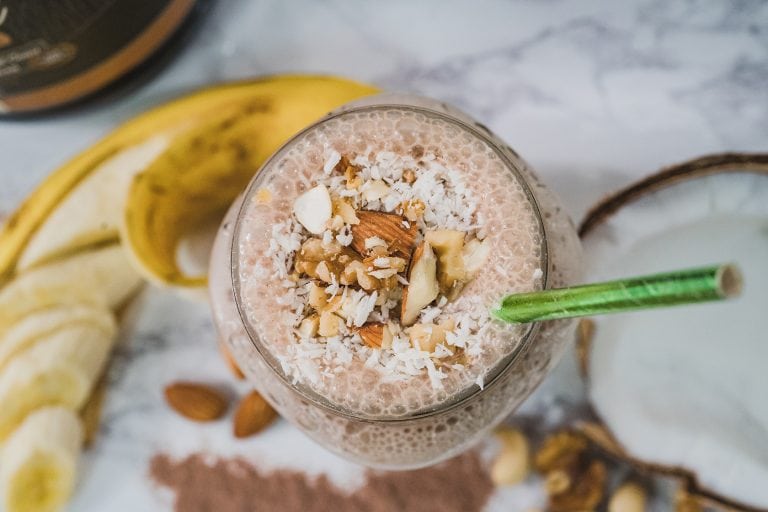
People are born with the ability to tell the difference between music and noise. Actually, our brains have different pathways for processing parts of music, like pitch, melody, rhythm, and tempo.
Music at a faster pace can increase your heart rate, breathing, blood pressure, while slower music can have the opposite effect. Scientists believe that when you hear music that you like, your brain releases a chemical called dopamine, which has a positive effect on mood.
Through music, we can absorb strong emotions, joy, sadness, or fear- it even has the power to move us. It can even improve our health and well-being. Have you ever thought of the incredible benefits music has on our well-being? Because we did, and we made a list of 21 health benefits you should definitely be aware of when you’re listening to music.
- Your favorite tunes can keep you calm – According to an Ohio State University study, listening to their favorite music helped ICU patients deal with their anxiety.
- Music makes you eat less – A recent study made by a restaurant discovered that its clients ate about 18 percent less food when they had their dinners served with a touch of soft lighting and jazz.
- A good set of instrumentals can improve your mental focus – There’s also a study that proves how young adults can perform a task with better levels of concentration if they listen to a concerto from Vivaldi.
- Good music soothes and relaxes your blood vessels – Listening to the music that you like can cause your blood vessels to expand, increasing blood flow and improving cardiovascular health.
- Group singing can make you very happy – British researchers came to the conclusion that when people are singing together, they feel way better than the ones who are singing by themselves.
- Playing an instrument may enhance your brain sharpness later in life – The more years children are spending learning how to play an instrument, the faster their brains will respond in the future.
- Music classes make children be more cooperative – Preschoolers who sit and played instruments were 30 times more likely to help others in subsequent tasks that measured their helpfulness, as studies have shown.
- A mellow playlist might help you with your rage – If you’ll listen to a mellow song, you won’t be so tempted to get angry in the traffic.
- Music therapy works for kids with cancer – The Australian Music Therapy Association proved that music therapy programs for kids with cancer are really helping them grow resilience and improved coping skills.
- Work will get done faster – Listening to a jolly playlist at work can help you complete tasks more quickly, especially if your job implies doing a repetitive action.
- Your stress levels will go down with a good playlist – Music decreases your levels of stress hormone cortisol as well as massage therapy would.
- Music is even good during surgeries – Studies proved that listening to music before surgery can ease anxiety and limit the need for sedatives. While after surgery, it helps reduce pain.
- Music makes you more creative – Researchers from the Netherlands and Australia discovered that listening to upbeat, happy music can lead to more creative solutions, than just sitting in silence.
- It gets your dopamine flowing – Have you heard of dopamine, our best friend? Studies show that listening to music can release dopamine, as much as eating chocolate, having sex, or using cocaine.
- Makes you feel more comfortable – Music can distract you from your discomfort and motivates you to keep on going (especially if you’re listening to Black Eyed Peas)
- Music can give you power – People who were caught listening to music during a workout had a better speed while sprinting and hold heavy weights for a longer time.
- It helps you sleep – According to the National Sleep Foundation, listening to music can make you fall asleep faster, and wake up less often during the night.
- Music heals your soul – (This one is the best so far) 400 studies had shown that music increases the body’s production of the antibody immunoglobulin A, with attacks viruses and bacteria.
- A great album can make time fly by – Scientists have shown that people are judging time differently when they’re listening to their favorite playlist.
- Music will help you feel less pain – Music can reduce pain for fibromyalgia and cancer patients.
- A song can help Alzheimer’s patients remember – Studies show that music helps patients with Alzheimer’s retrieve memories, communicate more effectively, and remember things about themselves they have forgotten.
Not only that, but it also helps children with autism spectrum disorder, who responded to music therapy.
Not to mention how it can soothe premature babies, having an impact on their vital signs, and improving feeding behaviors. It can fend off depression, and the list can go on endlessly. As long as we have music in our lives, the possibility of promoting beneficial changes is real and very close to us.
If you enjoyed reading this article, we also recommend you: 7 Simple Ways to Relax That Really Work

























